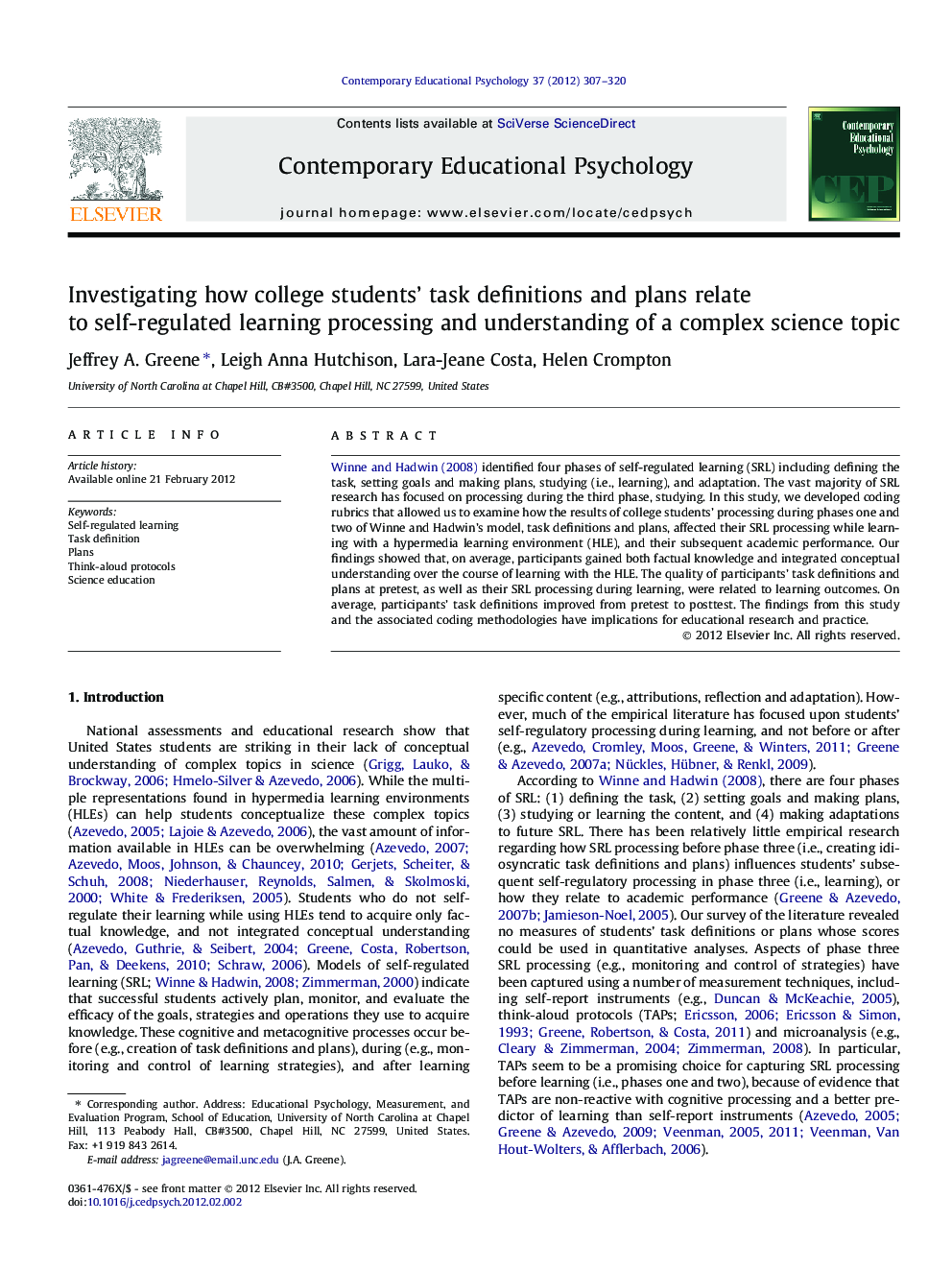| Article ID | Journal | Published Year | Pages | File Type |
|---|---|---|---|---|
| 352735 | Contemporary Educational Psychology | 2012 | 14 Pages |
Winne and Hadwin (2008) identified four phases of self-regulated learning (SRL) including defining the task, setting goals and making plans, studying (i.e., learning), and adaptation. The vast majority of SRL research has focused on processing during the third phase, studying. In this study, we developed coding rubrics that allowed us to examine how the results of college students’ processing during phases one and two of Winne and Hadwin’s model, task definitions and plans, affected their SRL processing while learning with a hypermedia learning environment (HLE), and their subsequent academic performance. Our findings showed that, on average, participants gained both factual knowledge and integrated conceptual understanding over the course of learning with the HLE. The quality of participants’ task definitions and plans at pretest, as well as their SRL processing during learning, were related to learning outcomes. On average, participants’ task definitions improved from pretest to posttest. The findings from this study and the associated coding methodologies have implications for educational research and practice.
► We captured and scored college students’ definitions of a learning task and plans. ► We related task definitions and plans to self-regulated learning processing. ► Task definitions improved over the course of the learning task. ► Task definitions and plans were related to self-regulation and learning.
